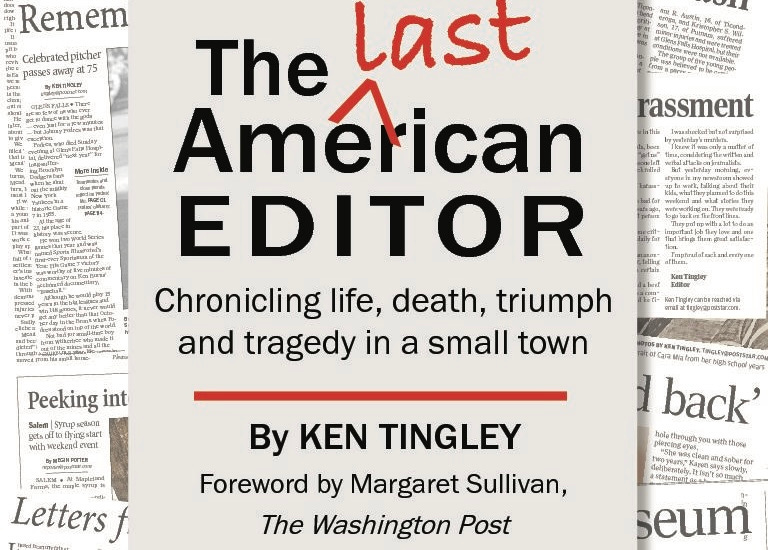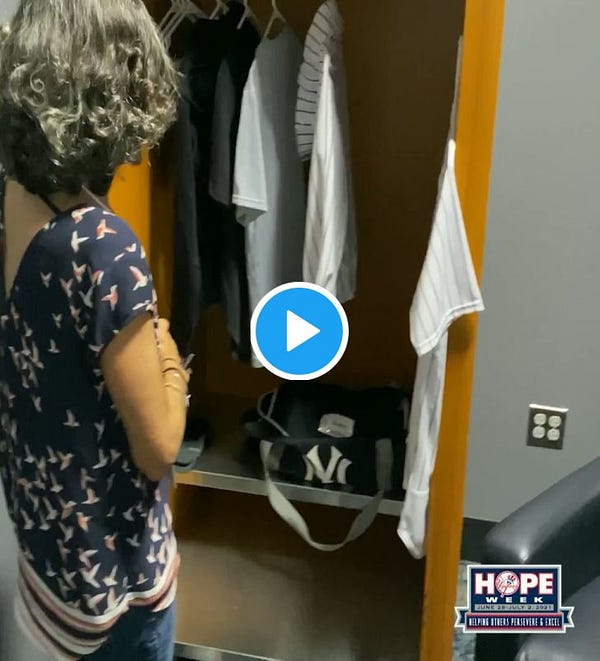The Front Page
Morning Update
Wednesday, June 30, 2021

By Ken Tingley
A couple years ago, Margaret Sullivan interviewed me for her book “Ghosting the News.”
She wanted to know how our newspaper was doing during a climate when many newspapers were reducing their staffs and coverage.
“We’ve had to make some tough decisions,” I told her.
When the book was released I bought it, hoping to find some answers. What I found was that communities were negatively affected when their local newspaper cut its staff and coverage. I hoped to use that point as a rallying cry for my own readers to support the newspaper. What Sullivan’s work did was identify the problem, but the solutions were still a bit murky.
Next month, I’m releasing a collection of my columns as a reminder of how newspapers give communities a sense of self. I reviewed thousands of my columns and came up with 83 that I believe speak to the community and region in which we live. I hope it is a reminder of who we. But what I found as I reviewed the columns was that these were stories with universal themes that anyone could appreciate, not just someone in upstate New York.
So as I looked for someone to introduce the work, I focused on Sullivan.
She had come up through the ranks and become editor at the Buffalo News. I knew of her, but I’m not sure if I had ever met her before. She knew upstate New York and the small communities that give it its heart, and she also was familiar with the work we did at The Post-Star. She went on to become public editor at The New York Times and is now the media columnist at the Washington Post.
She was a good choice. She wrote this in the foreward:
“If I were making an argument in court for the value of small newspapers, I would point, as Exhibit A, to Ken Tingley’s work at the Post-Star in Glens Falls, New York. For many years, Tingley has fostered what small newspapers — at their best — stand for: their tight-knit connection to the community, their focus on people, their indelible sense of place. Tingley is remarkable, too, in his versatility: He edited the paper expertly, leading it to win a slew of journalism awards during his tenure, including a Pulitzer Prize for editorial writing. And his writing, which is both spare and evocative, is of a national caliber.
“So it is a wonderful gift that a generous selection of his columns is collected here, where they can be read, returned to, and treasured. Newspaper work is, by its nature, ephemeral. It’s of the instant, of the day. Readers absorb it, appreciate it or object to it, and then stack the paper for recycling. And we ink-stained journalists recognize we aren’t writing for the ages but for the moment.”
They were humbling words, but they also carried some wisdom I had not considered, that newspapers were “of the instant, of the day.” Readers rarely ever get to see the body of the work in full. That’s what our readers were missing when evaluating us.
My goal when I started this project was to preserve some of these great stories about the people in our community for posterity. But I now believe, it provides a greater lesson that is part history and part love letter.
“These columns are of their moment, but they also have lasting value,” Sullivan wrote in the foreward. “When he writes, for example, about a young soldier, about to ship off to the Persian Gulf after 9/11, the column is not only about specific people — Ed Feulner and his wife Cindy, of Hudson Falls — but also about something universal and timeless. At the end of each column collected here, Tingley provides an update or a reflection in the form of a postscript. It says so much about the value of small newspapers that, in the postscript about the Feulners, Tingley recalls that, after he interviewed the couple in December, 2002, he asked the Post-Star’s publisher, Jim Marshall, if one of the newsroom’s laptop computers could be donated so that Ed could keep in touch more readily from overseas with his family. The publisher agreed and Tingley soon dropped the computer off at their home as a Christmas and going-away gift.”
It is all a reminder of the value of newspapers, and journalism instead of what you see on Facebook and other social media platforms. These columns, taken as a whole, show the heart and soul of our community.
That still holds value.
In her book “Ghosting the News,” Sullivan reminded her readers of this old newspaper axiom: “Journalism is what someone doesn’t want you to know. The rest is advertising.”
They are words of wisdom that we all should remember.
Preorder Book
“The Last American Editor” will be released on July 30. You can preorder at the Something or Other Publishing website:





Articles on climate change should appear daily in all newspapers so people stay aware of it.
Already paid the pre-order! Looking forward to reading it! Good luck